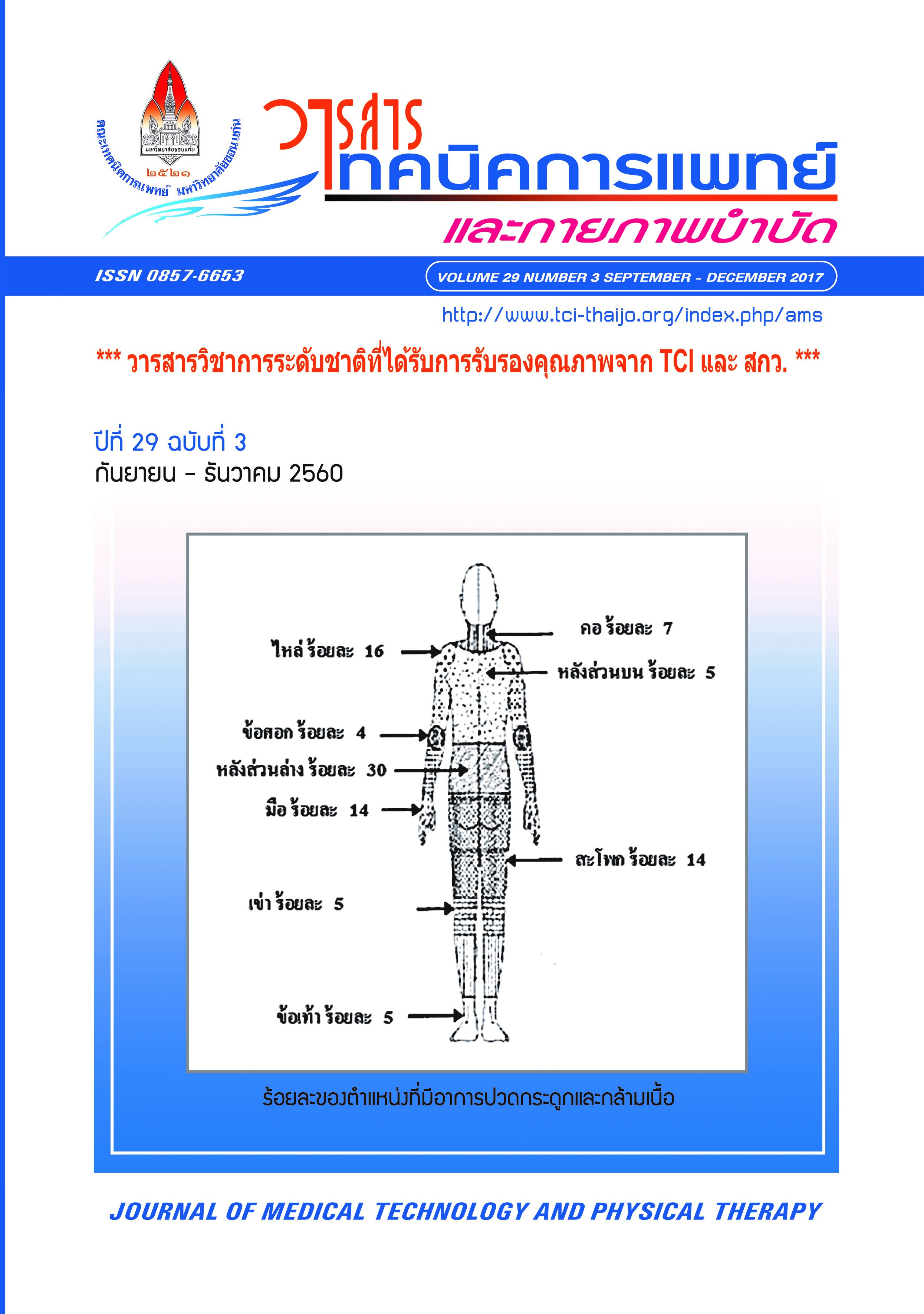Prevalence and correlation between spinal pain and spinal range of motion among first year Physical therapy students, Huachiew Chalermprakiet University, academic year 2015
Main Article Content
Abstract
Spinal pain is the most common problem especially the health sciences student which will be responsible for rehabilitation of patient’s health problems in the future. They must understand physical health problems and the chance to develop the musculoskeletal system. Our objectives are as follows, firstly, to study the prevalence of spinal pain, range of motion and postural analysis. Secondly, to identify relationships between spinal range of motion and subjectively pain scored in the first year physical therapy students. One hundred and fourteen, first year physical therapy students (academic year 2015) at Huachiew Chalermprakiet University were subjectively evaluated pain scored at neck thoracic and lower back by visual analog scale (VAS), postural analysis by postural analysis grid chart and pump line. They were assessed spinal range of motion by single/double inclinometer measurement. The results indicated that most of students had no neck, thoracic and lower back pains (76.32-55.26%). This study found that the most prevalence of musculoskeletal pain was on neck pain 44.74% mean neck pain 3.34, lower back pain 26.32%, mean back pain 4.37. There were low back pain 26.32% and thoracic pain 23.68% respectively mean thoracic pain 3.81. The spinal range of motion was limited for neck and thoracic movement but low back movement was normal. However, neck, thoracic and lower back pain were not correlated with spine range of motion in all directions (p > 0.05). The postural analysis of students almost was correct posture (average scored 81.67 = no impairment). In conclusion, most first year physical therapy students had no spine pain and normal posture. Neck pain is the most common, low back pain and thoracic pain respectively. However, spine pain was not correlated with spine range of motion in all directions.


